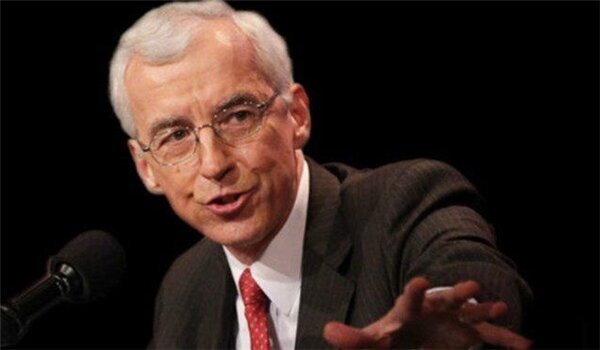
TEHRAN-TABNAK, Feb 4– Professor Paul Pillar, who was CIA intelligence analyst for 28 years, says Netanyahu is unlikely to get endorsement from Trump, who does not want a new war right now, for a military attack on Iran.
“Moreover, Netanyahu will not endorse any agreement, on anything, with Iran, which he wants to keep isolated,” Pillar told TABNAK News Agency.
Following is the full text of the interview.
Q: In his positions on Iran's nuclear program, President Trump has emphasized that he wants to talk to Iran. On the other hand, he has threatened a military attack if the talks fail. Will we see the talks begin soon?
A: Although Trump's expressed desire to talk with Iran is probably genuine, there are so many other issues, both foreign and domestic, on his plate right now that I would not expect negotiations to start soon. Many of these other distracting issues are of Trump's own making, such as his trade wars. Policymaking bandwidth is limited, and there are only so many things that any president can pay attention to at once.
Q: It seems that President Trump wants to resolve the Iranian nuclear issue through negotiations so that he can focus on containing China. What is your assessment?
A: Trump's main motivation in seeking any kind of agreement is to try to show that he is a deal-maker who can complete supposedly better deals than his political opponents can. This would be the way he would portray any new nuclear agreement in Iran. There certainly are officials in his administration who believe that the United States should devote less attention and fewer resources to the Middle East so that more attention can be given to meeting the challenge from China. But Trump himself probably does not think that strategically. In any event, completing a nuclear agreement with Iran would mean paying more, not less, attention in the short term to Middle Eastern matters.
Q: Do you think that if President Trump makes an agreement with Iran, the US Congress, where his opponents are present, will support this agreement and not create obstacles?
A: The Republican Party has majorities in both houses of Congress, and Republican members there have so far demonstrated that they will support almost anything that Trump wants. This is unlikely to change with any agreement that restricts Iran's nuclear program. Democrats in Congress are less likely than Republicans to oppose something just because the other party favors it, and most Democrats are likely to support a new nuclear agreement with Iran. The situation is different than at the time the Joint Comprehensive Plan of Action was negotiated, when Republicans automatically opposed the JCPOA because a Democratic president supported it.
Q: Israeli Prime Minister Benjamin Netanyahu has said before his trip to the United States that he will pursue a “peace through strength” approach to stability in the region. This strategy has been put forward by President Trump and his team (Secretary of State and Secretary of Defense). How will this policy be pursued in the region, and especially with regard to Iran?
A: For Netanyahu, "peace through strength" means not peace at all but instead a continuation of the heavy use of military force in Palestine, Lebanon, Syria, and elsewhere. Netanyahu would favor a military attack on Iran, preferably with U.S. support and involvement, for multiple reasons, including many of the same reasons (including his domestic political standing) he has kept his other wars going. What has restricted him so far is the prospect that, without direct U.S.logistical or other help, Israel probably would not be able to inflict decisive damage on Iran's nuclear program.
Q: Israeli Prime Minister Benjamin Netanyahu has traveled to the United States and will also meet with US President Donald Trump. What do you think the outcome of this meeting will be regarding Iran?
A: The principal focus of their discussions will be Gaza and the Israeli-Palestinian conflict. On Iran, they may agree to disagree. Netanyahu is unlikely to get endorsement from Trump, who does not want a new war right now, for a military attack on Iran. Moreover, Netanyahu will not endorse any agreement, on anything, with Iran, which he wants to keep isolated.